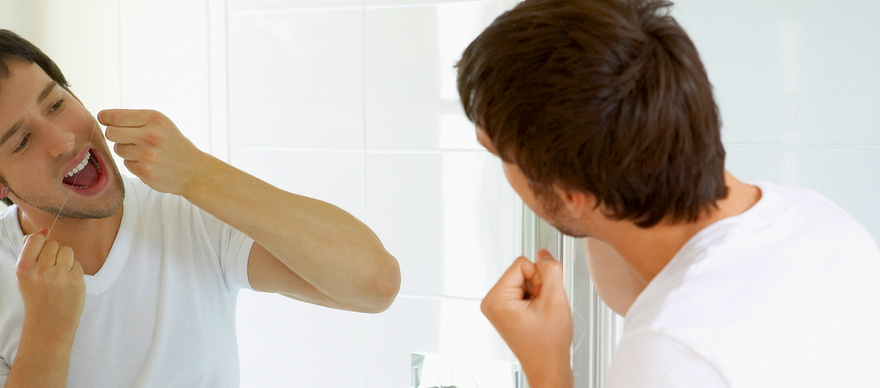INTRODUCTION
What's Your RealAge?
There are a ton of products out there that promise to help you look and feel younger, but many of them overlook one of the most crucial pieces of information:
The actual age of your body.
Because if you want to look or feel younger, you need to know how old you are to begin with.
Time is a factor, but so are the decisions you make on a daily basis. What to eat, how much to exercise, what time you go to bed.
The RealAge Test measures these factors to tell you how your lifestyle is impacting the age your body.
Here we look at four factors many people don't realize are making them older.
Keep reading or take The RealAge Test to discover the actual age of your body.

SITTING
You Sit More Than Stand
Long hours with your butt planted on a chair at work and later on the couch at home can add up to big health problems. Research has linked prolonged sitting to cancer, obesity and type 2 diabetes.
Spending time on your bum also negatively affects your blood sugar, cholesterol, blood pressure and appetite hormone leptin, all of which are biomarkers for obesity and cardiovascular disease.
Unfortunately, moderate exercise to counteract the effects of sitting all day long doesn't work.
Even if you spend an hour a day exercising, spending just five to six hours a day sitting with few to no breaks may be as bad as smoking an entire pack of cigarettes.

SOCIAL LIFE
You Mainly "See" Your Friends Online
You may have a lot of Facebook friends, but if you don't have close friends or family to connect with in real life, your RealAge will suffer. Not having people to turn to in times of trouble has been associated with poor health.
On the other hand, a strong social network nurtured by face time with family and friends has been shown to boost your mood, improve your ability to cope with adversity and can strengthen your immune system.
If your circle of friends is lacking, consider ways to forge new connections, whether it's volunteering in your community, joining a book club or teaming up with a group of walkers.

SLEEP
You Skimp on Sleep
Are you a chronic sleep skipper? If you get less than six to nine hours a night, your body will let you know it's not a happy camper.
For starters, it throws off your appetite-regulating hormones in ways that make you eat more and gain weight. It's also been linked to heart disease and stroke.
Too little sleep doesn't do your noggin any favors, either. General brain fog means you're more forgetful, less alert and apt to make poor decisions.

SMILE
You Neglect Your Smile
Brushing and flossing may not be your favorite activities, but showing your teeth regular love is a RealAge must!
Neglecting your pearly whites can lead to gum disease and tooth loss, factors that can lead to inflammation. Numerous studies have linked poor oral hygiene to increased risk for cardiovascular disease, including heart attack and stroke.
Good oral care (brushing and flossing daily and getting regular dental checkups) can boost health–and keep your smile bright.
YOUR REALAGE


Start The RealAge Test
These are only four of hundreds of factors that contribute to your RealAge and your overall health.
Curious about how your lifestyle and habits are affecting the age of your body?
Want to know what you could be doing to lower your RealAge?
Start The RealAge Test Now!
